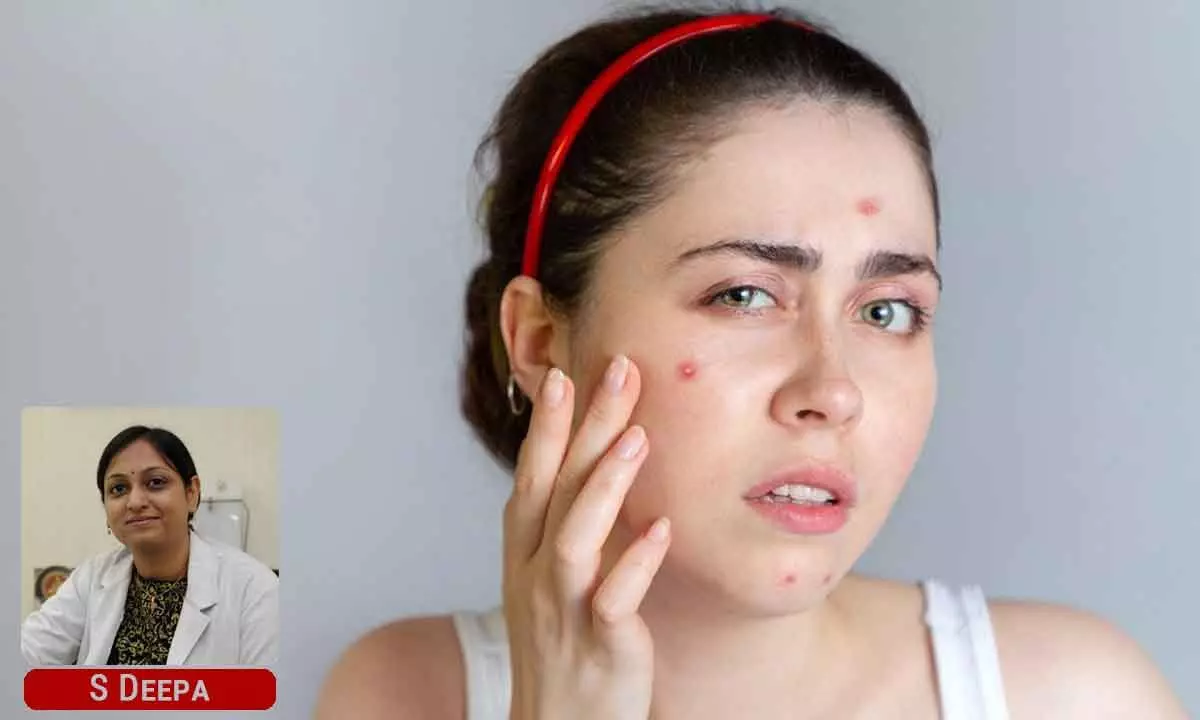The effective way of managing acne

Acne is a common skin condition that requires proper attention so that severe after-effects can be avoided, like scarring and pigmentation. Acne is a skin condition that occurs when hair follicles become plugged with oil and dead skin cells. Acne can cause emotional distress and scar the skin depending on the severity. The earlier we initiate the treatment, the lower the risk of serious sequelae such as scarring and pigmentation issues. Acne vulgaris is an inflammatory skin condition, with severity ranging from blackheads and whiteheads to cysts. The causative organism is Propionibacterium acnes, which causes inflammation. The hair follicles become plugged with oil and dead skin cells, and bacteria grow there, causing infection.
Acne lesions develop on sebaceous areas like the face, ears, neck, chest, shoulders, back, and scalp. Mild itching and pain are common in severe acne cases. We treat Acne depending on the grade of Acne. Grade I & II Acne are treated with topical creams and other skincare products. Grade III & IV Acne requires oral antibiotics and oil-lowering medications. Treatments such as medical peels and laser help control acne scars for longer periods.
Tips to Control Acne:
1. Wash your face 2-3 times daily with a mild sulfate-free, fragrance-free cleanser.
2. Avoid too much rubbing and harsh towelling while cleansing. Avoid excessive cleaning of the skin, which can lead to irritated skin. Choose the right cleanser according to your skin type and age.
3. Washing the hair regularly is also important for controlling Acne; avoid too much oiling of hair and scalp to keep pimples under control.
4. Keep your hands off your face. Excessive touching and picking of pimples can cause increased infection and subsequent scarring.
5. Keep your nails short and clean.
6. An excellent non-comedogenic moisturiser keeps the skin from drying and further irritation.
7. Only experiment with some new fancy skincare products and home remedies. Check out what works best for you with the help of a dermatologist, and stick to the routine.
8. Use good medical sunscreen with at least SPF 25 to prevent markings and scars.
9. Sunscreen should be applied every 2-3 hours indoors too. Electronic Gadget lights also aggravate Acne and acne scar.
10. Minimise makeup and facial on the skin. They cause clogging of pores, further leading to Acne.
11. If makeup has to be used, it should be removed promptly before bedtime; though Acne takes time to clear, following these tips help to reduce breakouts and prevent scars to a large extent. For more preventive measures, consult a qualified Dermatologist.
(Phl: 8374936338 and 040-27200842)


